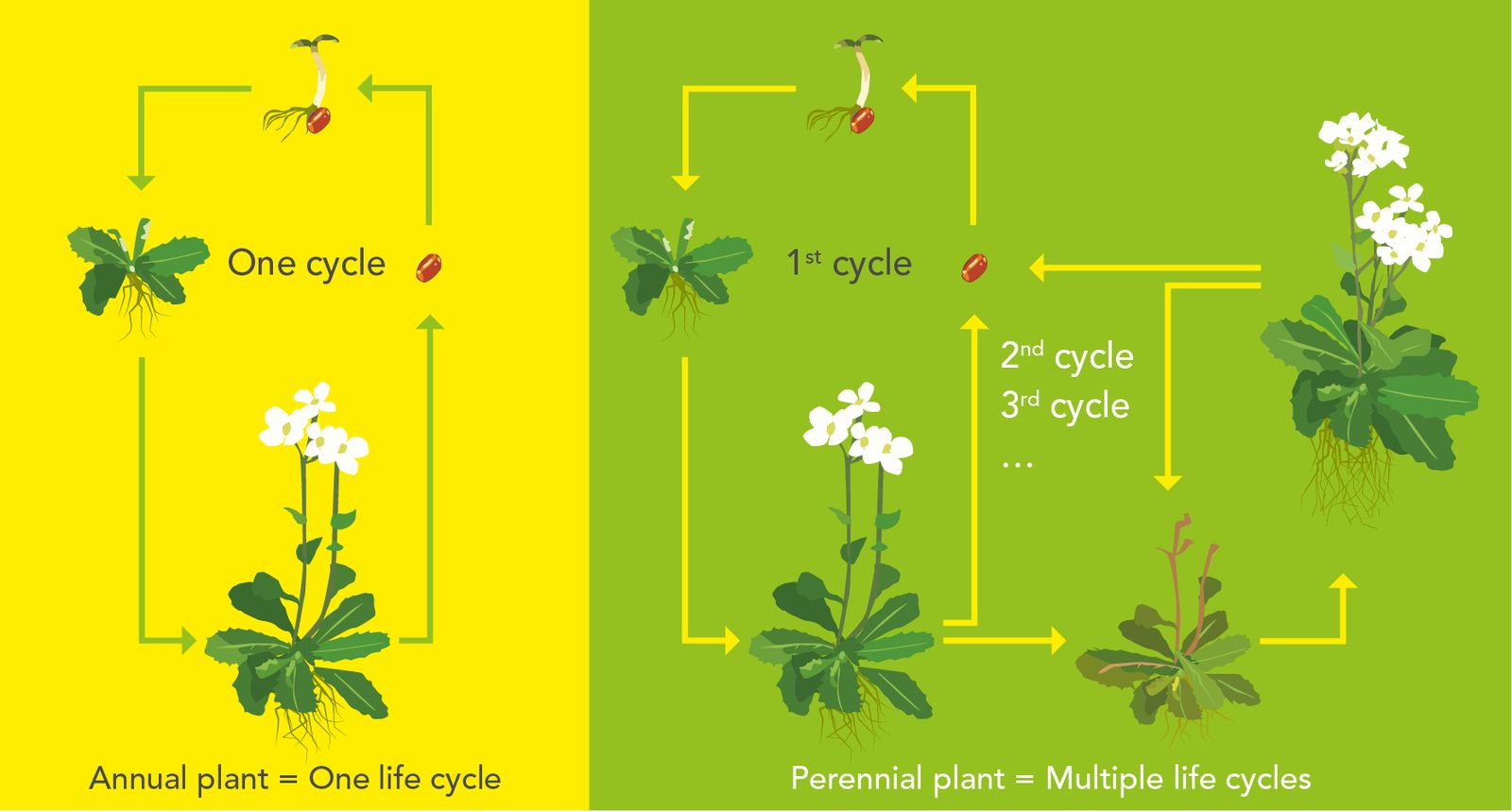Research Area A: Annual and Perennial Life Histories
Elucidation and Manipulation of the mechanisms that differentiate annual and perennial life histories
Annual plants complete their life cycle in a single year and reproduce only once. By contrast, perennials live for many years and reproduce several times. Perennial species predominate in most natural environments, the majority of crop plants however are annuals. The distinction between annuals and perennials has evolved independently many times.
One of our major aims is to understand the genetic and mechanistic basis of this distinction between annuals and perennials. We will mainly use species of the Brassicaceae family because they are genetically tractable and have small genomes. We will construct detailed phylogenies of Brassicaceae genera and determine their life histories. This analysis will facilitate genetic and genomic studies of independently diverged, closely related pairs of annuals and perennials.
Another focus in our Research Area is shoot architecture, as this often differs between annuals and perennials due to the differential behaviour of meristems; therefore we will study the variation in the regulatory modules controlling formation and identity of meristems and try to construct mathematical model of their function.
Thirdly, ecological studies of natural populations of perennials will determine the selective advantage of this trait. In another approach, we will study the significance of variation in architectural and life history traits to control agricultural yield by using Brassica and barley crops.
Our long-term aim of research area A is to try to engineer perennials from annuals by using Arabidopsis thaliana as a model organism. These experiments will provide the background for the generation of high yielding perennial crops with ecological advantages.
Coordinator
Prof. Dr. George Coupland

Department of Plant Developmental Biology
Max Planck Institute for Plant Breeding Research
